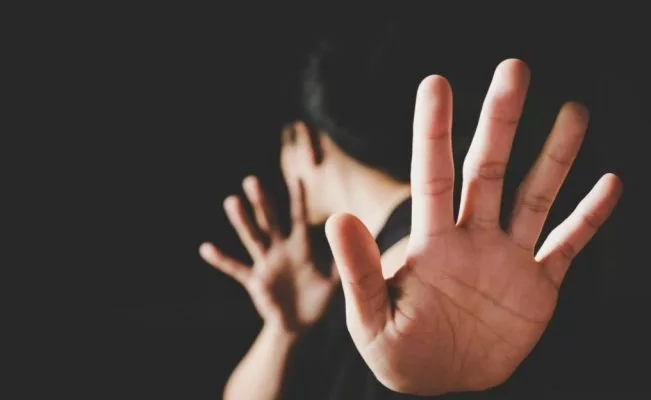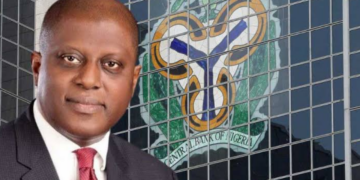In public, many couples parade smiles, share staged laughter, and hold hands as though all is well. But behind closed doors, the reality is starkly different. Countless men and women cry in silence in bathrooms, kitchens, and cars , nursing emotional wounds and physical scars. What starts as love often mutates into fear, and affection into violence.
From bandaged hands to swollen eyes, knife wounds, and bruised bodies, victims of domestic violence and sexual violence cover up their pain with lies: “I slipped on a tile,” or “I hit my head on the door.” Shockingly , many go to great lengths to protect abusive partners , parents and guardians , whether out of fear, shame, or hope for change.
Sadly, the silence surrounding male victims is especially deafening. Conditioned to “man up” and endure pain, many men suppress their trauma, fearing ridicule or rejection if they speak up. Society often dismisses their stories, assuming that a man cannot be abused , especially not by a woman.
As a result, countless men suffer in isolation, their voices drowned by stigma, their wounds hidden beneath long sleeves and forced smiles. LEADERSHIP Weekend writes that until this silence is broken, the cycle of abuse for both men and women will continue to thrive in the shadows.
When Nigerians hear “domestic violence,” the image often conjured is that of a husband beating his wife. But the reality is far more complex, touching lives in ways that society often chooses to ignore.
According to UN Women, nearly one in three women worldwide,vapproximately 736 million, have experienced physical or sexual violence, most often at the hands of an intimate partner. In Nigeria, the National Demographic and Health Survey reports that 31 percent of women aged 15 to 49 have suffered physical violence. Yet emerging data from NGOs reveal a lesser-known truth: over 25 percent of men have also faced abuse in their relationships, challenging the stereotype that domestic violence affects only women.
At a recent media parley held in September to mark Domestic and Sexual Violence Awareness Month, Lagos State’s Attorney General and Commissioner for Justice, Lawal Pedro (SAN), revealed alarming statistics. Between August 2024 and July 2025, the state recorded no fewer than 8,692 cases of domestic and sexual violence. Of these, domestic violence alone accounted for 3,685 cases, making it the most reported crime in Lagos during that 12-month period.
Violence doesn’t just happen in public spaces or stereotypical settings, it takes place behind closed doors, often in silence. It’s found in the homes of widows, children, respected community leaders, and men who rarely speak about their suffering.
Consider the story of Grace Unachukwu, 42, from Owerri, Imo State. After losing her husband, Grace faced a fate more cruel than she ever imagined. Instead of receiving support during her time of grief, she was accused of witchcraft by her late husband’s family, a tactic used to justify stripping her of rights and dignity.
She was subjected to humiliating “cleansing” rituals, forcibly removed from her home, and left with absolutely nothing. “They took everything, including the pots in my kitchen,” she recounted. Her abuse was masked as tradition, but in truth, it reflects how harmful cultural practices continue to perpetuate violence and dispossession, especially against widows.
Grace’s story is just one among many that illustrate how domestic violence extends beyond physical abuse to economic, emotional, and cultural oppression. It underscores the urgent need for comprehensive government policies.
Grace now lives in a small rented room on the outskirts of town, her children scattered among relatives. For widows like her, bereavement marks only the beginning of violence.
In Ibadan, 12-year-old Kemi Ojo endures daily suffering at the hands of her stepmother. Physically frail, her body riddled with scars and open wounds, Kemi is beaten for the smallest mistakes and starved even when food is plentiful. She hides her scars beneath her school uniform. “Sometimes I don’t want to go home. I’m not her child, so she can treat me however she wants,” Kemi confides.
At school, Kemi often dozes off, too weak from hunger and exhausting chores at home. Her notebooks bear the stains of tears. Teachers noticed her distress, but when questioned, Kemi insists she simply fell while playing or that she is “fine.” Her father’s passivity compounds the betrayal; Kemi has come to understand that no one will speak up for her.
Experts warn that children in stepfamilies face a higher risk of abuse when guardians view them as intruders rather than family. The Domestic and Sexual Violence Agency in Lagos has documented numerous cases where children like Kemi become targets of resentment, deprived of food, affection, and education.
Ngozi Okonkwo 15, have lived with her mother and step-father in Dutse Abuja since her parent’s divorce. Every night, he comes into her room to sexually assault her. Her screams and cries for help fall on deaf ears. She remains helpless as she is warned by her mother to never repeat happenings in the home to the hearing of outsiders.
Sixteen-year-old Ifeoma Nwankwo once thought her parents’ divorce would bring relief. Instead, she became the battlefield. Her father hurls insults about her mother in her presence, while her mother vents her rage on her after bitter quarrels. Twice, she has fled home. Now, she lives on the streets of Asaba, doing menial jobs that earn her just enough to survive each day. “The streets felt safer, more peaceful. I’m never going back home,” she told LEADERSHIP Weekend.
But life on the streets has its own dangers. Ifeoma is one of many teenagers who roam the streets daily, skipping school and searching for their next meal, at constant risk of rape, kidnapping, and other forms of violence.
LEADERSHIP Weekend also spoke to 19-year-old Zainab Abdul, brought to Abuja from her village in Kaduna by a job recruitment agency promising schooling but instead, she works as a househelp for a rich family in Gwarimpa, waking before dawn to scrub, cook and water tthe vegetable farm owned by her boss.. She tends to a baby while still a child herself. Her hands are roughened and ache from chores, and her back is marked with bruises from frequent beatings.
Neighbours, disgusted by the daily cries for help coming from her boss’s apartment, have repeatedly reported the abuse to the police. On one occasion, Zainab’s fingers were burnt with a lit candle , what she told our correspond was punishment for being caught eating the baby’s food. According to her, her boss was arrested but bailed out a few days later by her husband.
Despite this, Zainab continues to live there, with nothing seeming to change. Meanwhile, her parents back home remain completely unaware of the suffering their daughter endures.
Meanwhile, in Lagos State, , silence often shields abuse behind the walls of churches. Mummy Pastor, Mrs Esther O., a 39, wife of Pastor Michael O, a well-known charismatic preacher, said she has mastered the art of hiding her pain.
She Told LEADERSHIP Weekend that beneath her long flowing choir robe are bruises she carefully conceals, marks from nights filled with violence at home.
Every Sunday, she sits in the front pew, smiling dutifully as her husband delivers fiery sermons on love, submission, and the sanctity of marriage.
In her words, “The congregation reveres my husband, calling him Daddy G.O; a man anointed by God. But when the pulpit lights dim and the crowd disperses, I return to a different reality
In the silence of their home in Surulere, I brace myself for his fists. “He says God made him the head and that I must submit, even to pain. If I question him, he says I’m resisting God.”
Esther said her friends at church see only her radiant smile and elegant ‘gele,’ never the swollen lips hidden under bright lipstick. Speaking out would mean shattering not just her marriage but her husband’s ministry.
Shanna Okoro, 29, once counted herself among the most devoted workers at another local church assembly, a church respected across the community for its outreach and vibrant youth ministry in Port Harcourt, Rivers State. She believed deeply in her pastor, Reverend Samuel Eze, a man many described as a spiritual father. “People had warned me about him,” Shanna recalled softly. “They said he was not what he seemed but I didn’t believe it; I defended him.” One evening, Reverend Eze invited her to a private meeting in his office, saying he wanted to discuss her future role in the church. She went, flattered that he saw promise in her service. But the meeting quickly turned into a nightmare. “He tried to force himself on me,” Shanna said, her eyes clouding at the memory. “That day, I saw the truth for myself.” By sheer luck, someone walked into the office, and Shanna managed to escape. Shaken, she went home and never returned to the church again. The congregation still holds Reverend Eze in high esteem, unaware or unwilling to believe, the shadows behind his reputation.
For Shanna, faith has never been the same. “I still pray, but I am very doubtful of religious leaders,” she said.
In Lokoja, Kogi State, Chief Abraham Ogbole, 55, is celebrated as a philanthropist, businessman and respected community leader. He sponsors scholarships for underprivileged students, donates generously to local churches and is often photographed at charity galas. To the public, he is a man of honour. But behind closed doors, his daughter, Ojonugwa, 17, lives in fear. Chief Abraham has been raping his daughter Ojonugwa since she was 10 years old. “To the world, he’s a great man,” she whispered, tears rolling down her cheeks. “But to me, he’s a predator. If I talk, nobody will believe me.” She confided majorly in her High School Counsellor. Her small room in their family’s sprawling estate has become both sanctuary and prison. Every knock on the door sends her heart racing. She dreams of the day she would go to university, where she hopes to finally escape the dirty hands of her father, breathing down her neck and pinning her against a bed. In her family’s world, silence is survival, and appearances mean everything.
“For families under the shadow of such power, reputations matter more than lives,” said a women rights advocate familiar with cases like Ojonugwa’s. “People protect the abuser because of his name, his wealth and his status, while the victim is left to carry the burden alone.” Ojonugwa has tried to confide in her mother, but fear of scandal silenced her. Her mother simply said, “Don’t speak of such things. Do you want to destroy this family?” And so, Ojonugwa remains voiceless, trapped between love, fear and the crushing weight of her father’s reputation.
Love, Silence, Scars: Survivors Of Domestic, Sexual Abuse Speak Out:
Amaka Obi, 28, remembers the early days of her marriage with bittersweet clarity. After moving to Enugu, she fell deeply in love with Emeka, a young entrepreneur whose charm and promises of “forever” swept her off her feet. For a while, life felt like a dream. But that dream began to unravel shortly after the birth of their first child.
She said Emeka grew increasingly short-tempered, lashing out in violent outbursts over the smallest disagreements. “At first, I forgave him every time, Amaka recalled, her hands clenched tightly in her lap. He would apologise, buy gifts, kneel and cry. And I believed him.That cycle of violence and remorse became her reality, until tragedy struck. Their baby fell ill and died just before his first birthday. Still grieving, Amaka was once again attacked by Emeka. That was the day he beat me while I was still mourning our child,” she said, her voice cracking. Something inside me snapped.”
Her family, long suspicious of the abuse, intervened. One evening, her brothers arrived at the house and took her away, refusing to let her return. “If they hadn’t come, maybe I would still be there,” Amaka admitted. Now living with her parents in Nsukka, she is slowly rebuilding her life. The scars remainbut so does her strength. “I’ve learned that love should never be pain,” she said.
But violence doesn’t end with women and girls. Men, too, are trapped in abusive relationshipsoften in deeper silence, weighed down by cultural expectations and stigma.
In Onitsha, Anambra State, Chidi Nwankwo, 36, a spare-parts trader, shared his story of humiliation and emotional abuse. His wife, Ngozi, had a fiery temper. Arguments whether about money, the children, or chores often ended with slaps, insults, or shredded clothes. She would slap me, hurl insults, even tear my shirt in front of neighbours, Chidi said quietly. I wanted to leave, but I thought, people would laugh. A man beaten by a woman is a shame in our culture.”
In the bustling markets where he works, whispers followed him. Some mocked him, calling him nwoke nwanyi, “a man who behaves like a woman for not “controlling his wife.” Others told him to “be a man” and endure it. While women have at least some shelters and advocacy groups to turn to, men like Chidi have nowhere to go.
“If you report, even the police laugh. They don’t take it seriously. For years, he stayed silent, not just because of the violence, but because of the fear of ridicule. His silence mirrors that of many men who suffer in the shadows, trapped by a version of masculinity that leaves no room for vulnerability.
Incidents of domestic violence continue to increase across Nigeria, affecting both men and women in deeply personal and often hidden ways. Contrary to popular belief, men are not exempt from abuse in relationships.
The NGO Purple Lifeline Connection estimates that one in four Nigerian men have suffered abuse in their intimate relationships. This challenges the cultural stereotype that only women are victims and underscores the importance of inclusive support systems.
A study conducted in Sokoto State revealed even more alarming statistics among men: nearly all male respondents reported experiencing some form of violence. About 90.8 percent faced psychological abuse, 20 percent endured physical violence, and another 90.8 percent reported being victims of sexual abuse.
For women and girls, the situation is even more dire. According to the United Nations, 31 percent of Nigerian women aged 15–49 have experienced physical violence. This includes abuse from partners, family members, or others in positions of trust and authority.
These numbers reflect not isolated incidents, but a widespread and systemic failure of institutions meant to protect the vulnerable. The silence surrounding abuse, especially when it affects men and childrenonly deepens the crisis.
Domestic violence in Nigeria is often wrongly dismissed as “private quarrels” or family matters. This mindset prevents serious interventions and allows abuse to continue unchecked behind closed doors.
In truth, domestic violence is not a private issue, it is a public health emergency and a grave human rights crisis. It requires urgent action from government, civil society, religious leaders, and communities at every level.
A counseling psychologist at the Department of Educational, Counseling, and Management, Al-Hikmah University, Ilorin, Dr. Muraina Kamilu Olanrewaju, attributed many cases of domestic violence to poor emotional control, impatience, and external interference in relationships.
“Many people cannot manage their temperament. Without emotional intelligence and understanding of individual differences, conflicts escalate into violence,” he explained.
He also highlighted the impact of childhood experiences, noting that children who grow up witnessing abuse often view it as normal and may replicate it in adulthood. “Environment shapes behaviour as much as personality does,” he stated.
Dr. Olanrewaju dismissed the notion that gender alone determines how abuse is experienced or expressed, stressing that both men and women suffer in silence. “The difference lies in individual personality, not gender,” he said. He also pointed to cultural norms that downplay abuse or pressure victims to endure for the sake of family reputation. “Our society values appearances more than safety, which silences victims,” he added.
For long-term solutions, Dr. Olanrewaju recommended continuous family counselling, public awareness campaigns, unbiased law enforcement, and reforms in religious institutions. “Religious leaders in churches and mosques should not only preach peace but also undergo proper training to address domestic violence,” he emphasised. “Pain has no gender,” he concluded. “We must treat domestic violence as a collective problem, not a private one.”
While Nigeria is not without legal frameworks, enforcement remains a critical gap. The Violence Against Persons Prohibition (VAPP) Act of 2015 criminalises physical, emotional, sexual, and economic abuse. However, as of 2025, only 19 states and the Federal Capital Territory have domesticated the law, leaving entire regions where victims remain without legal protection or recourse.
According to legal practitioner Oghenovo Otemu, Esq., the challenges in addressing domestic violence are not unique to the VAPP Act but reflect a broader weakness in enforcing laws across Nigeria. He explained that domestic violence often occurs within homes where perpetrators hold dominant positions over vulnerable, dependent victims. Security personnel, often poorly trained to handle such sensitive cases, frequently dismiss them as “family matters.” Traditional and cultural pressures further discourage victims and their families from seeking justice, instead pushing them toward informal settlements.
Otemu also highlighted economic hardship as a significant barrier that frustrates survivors. Many victims lack financial independence and are forced to remain in the same family structures that shield perpetrators. Even when non-governmental organisations or pro bono lawyers take up such cases, perpetrators often use their influence to intimidate or silence witnesses, leading to abandoned prosecutions.
“Victims are left between the devil and the deep blue sea,” Otemu remarked, emphasizing that fear and lack of protection make it difficult for victims to give credible testimonies in court.
The situation is even more dire in states where the VAPP Act has not been domesticated, leaving survivors without any legal protection. But even in states where the law exists, Otemu noted that enforcement is severely hampered by poor infrastructure. Unlike in developed countries where victims are placed in protective shelters or foster care, Nigerian survivors are often forced to remain in the same abusive environments, exposing them to further threats.
When asked about legal solutions, Otemu asserted that legislation alone is not enough. “Until proper infrastructure is in place to take victims out of abusive environments, survivors will not be able to enforce their rights or confidently testify against perpetrators,” he concluded.
Ultimately, he argued, Nigeria’s domestic violence crisis is deeply rooted in broader governance failures including a lack of social infrastructure, poor data systems, and inadequate protection mechanisms. For Otemu, without addressing these systemic issues, he warned, survivors will continue to abandon their cases midway, leaving perpetrators unpunished and law enforcement powerless or unwilling to act.





